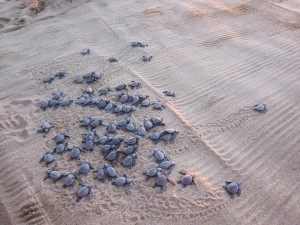A Fragile Strength
 I was in San Pancho, Mexico and didn't hear about the earthquake and tsunami in Japan until the next morning. The sun was shining, the ocean blue, and bright pink bougainvillea spilled over walls and trellis. I felt small and spoiled; the things of my life--each worry, each need—insignificant and almost shameful. There it was: the struggle between taking pleasure in the moment and knowing how fragile it all is. A person near me, or many people an ocean across, can be amidst the deepest loss while I write or read or lay in the sun.
I was in San Pancho, Mexico and didn't hear about the earthquake and tsunami in Japan until the next morning. The sun was shining, the ocean blue, and bright pink bougainvillea spilled over walls and trellis. I felt small and spoiled; the things of my life--each worry, each need—insignificant and almost shameful. There it was: the struggle between taking pleasure in the moment and knowing how fragile it all is. A person near me, or many people an ocean across, can be amidst the deepest loss while I write or read or lay in the sun.
But there are the simple things. A few evenings before, we’d watched the release of about 60 just-hatched turtles. It was a pure delight. The tiny hatchlings moved toward the ocean by paddling their small fins in the sand. They left their particular and beautiful tracks behind. This process of moving through the sand causes their lungs to expand, necessary as they meet the water. I took a video on my phone and it turned out pretty well, but I like this video even better.
Even in the beauty and thrill of the release we learned that the odds of survival of the hatchlings are very poor. Frank Smith, the Director of Grupo Ecológico de la Costa Verde, A.C, the group responsible for the preservation program on the Nayarit coast of Mexico, told us that only one in 177 hatchlings will reach adulthood. Once in the water, out beyond the surf, the turtles will catch the current and continue for about eight days before they eat, surviving on what’s in them, the yolk sac from the egg.
We watched them go, we applauded, the sun went down and those tiny creatures were making their way in that big ocean. Many years from now (they don’t reach maturity until they are well into their teens), perhaps one or two will come back to leave her own eggs in a nest in the sand.
